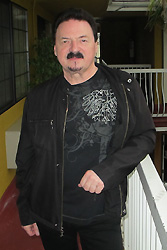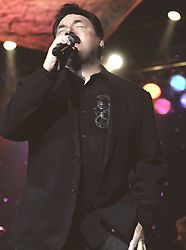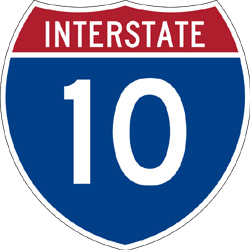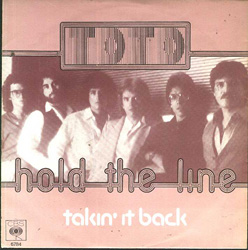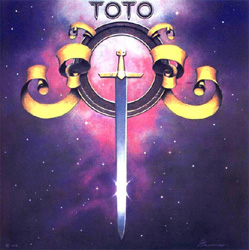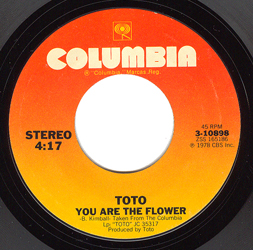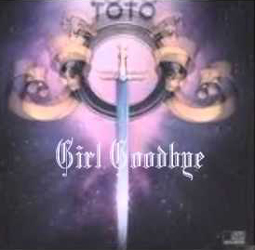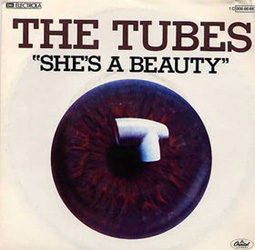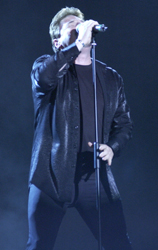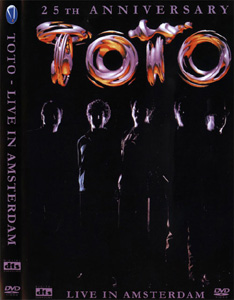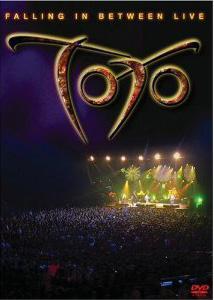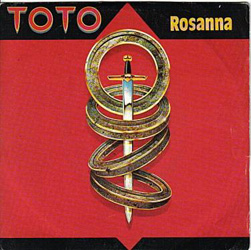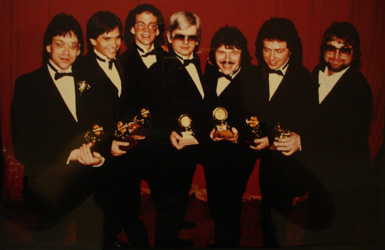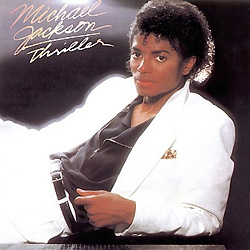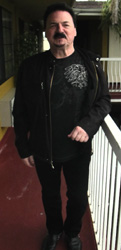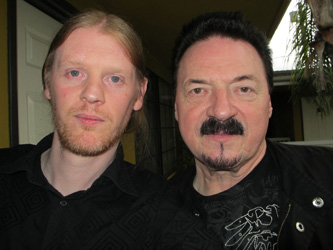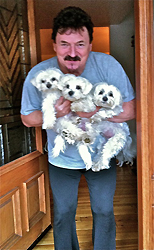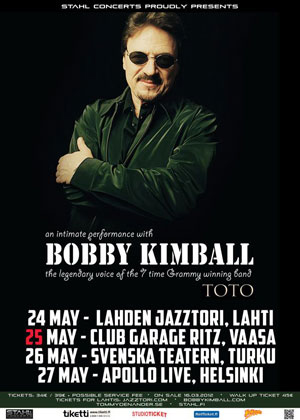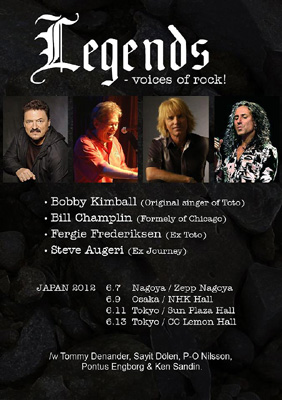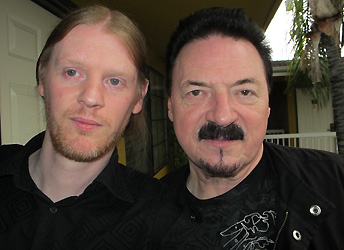|
An Interview with Bobby Kimball
(Original Vocalist of TOTO) that took place in West Hollywood, California, USA on Tuesday, May 2nd, 2012. Interviewed by Glenn Milligan.
Bobby: Oh boy, how much time do you have? Glenn: 62 hours (time allowance on record - hahaha) (We laugh) Bobby: Actually I gotta tell ya, my very first influence, I would have to say it would be my Mum because she had perfect pitch and anything she heard on the radio or an an album she could sit down and play it on the piano and that really freaked me out. I don't have perfect pitch but I have relative pitch so I know what one note is and you play another note, I can tell you relatively what that note is compared to this. Anyhow, my second influence I would have to mention would be, believe it or not, a shoeshining guy. Glenn: Yeah? Bobby: Yes he was. I lived in a little town of 3000 people in Louisiana and there was only one barber shop and there was a black shoeshine guy there and he was a very incredible person but he would shine shoes to the New Orleans 2nd line beat. Glenn: Right. Bobby: You know, it was very unique and he would sing while he was doing it and that blew my mind. He really was a great talent at that and I was learning chords at the piano by the time I was four because my mum was always paying and I would be picking up things from her. So watching him with this rhythm he was playing, I would run home, get on the piano and I had something to do with the chords then. Glenn: Yeah. Bobby: Before I just didn't underdstand the rhythm patterns. So when I was about six years old I did the unthinkable. I brought a black person to my house. In the south, you know, this was impossible.... Glenn: I know. Bobby: ...because everywhere you looked they had coloured entrances for this and that and then white entrances and keep other races out and everything. Well it was very strange but he came over, of course I had to ask my mum and dad and they said, "Of course". You know, we know this guy and he came over and I played him a couple of songs. I said, "I stole this from you", and he said, "You did", he said, "Thank you". (We laugh) But anyhow, he was one of my first rhythmic influences and then I heard Ray Charles. That sealed the deal. Ray Charles was god to me. Since I was just getting started with this music thing and I heard someone that fantastic. I was thinking that this is very possibly what I want to do with my life. of course, I went through so many different kinds of jobs and things. I went to a University to study to become a Doctor. I went there five years and during that time I was a surgical lab technician but I had a band also. So I never stopped playing music. I had my 1st band when I was 8 years old - it was called 'The Rebels'. Actaully I'll be putting a picture in an article from the newspaper of that band on my web page pretty soon because I'm getting the original picture from the newspaper that put it out so many years ago. Glenn: Nice. That's incredible that they've still got it in the vaults. Bobby: Yes, they keep all that. So anyhow my elaborate influences, my later influences were people like Aretha Franklin, Otis Redding, Wilson Pickett, Marvin Gaye - so many black artists. Being down in Louisiana, all the music was black. Glenn: Yeah. Bobby: And that always.. that was kind of was strange to me because there was so much prejudice against black people but everyone was going out and enjoying themselves and getting entertained by black music. That was very strange, you know. By the time I was about 18 years old and graduated from high school I went to the University and the lead singer in the band I was in, it was a 10 piece band - we had five horns and of course playing all black music. But the lead singer quit the band and I'd been singing like four or five songs a night. The horn section walked over and put all the lyrics on my Hammond B3 - "You're the singer". So we were doing the four hour set every night and one singer cannot sing four hours if they have any sense.
Glenn: You did? Bobby: Yeah. Well I did for a couple of weekends but then at the university, I was in the student union and there were these two black twins and they were standing by this piano singing this girl was playing and I thought they were fantasic. So I walked over and asked them if they would be interested in playing in a band. They said, "Absolutely". So I was one of the first people to bring to a white club, black singers. Glenn: Wow. Bobby: Yeah. They were awesome. They were about 6 foot 5 - that is rather tall... Glenn: Oh yeah. Bobby: ...and they dressed really, really nice. Their father was a baptist preacher and they sang their *ss*s off and they danced really well and everything. Anyhow, after a while all of the clubs started hiring black singers but it was pretty scary for a while there because one of 'em smiled at this white girl the first night and she smiled back and all of a sudden, we were on our first break, the two black guys and me were all over backed into a corner - had people all around us and this was practically my home town. Glenn: A confrontation. Bobby: Yeah they wanted to kill us. Glenn: Yeah. Bobby: Mainly because they were black and me because I brought them. But it was neither here nor there after that - everything was fine. It just all started smoothing out. Of course, the club owner walked up behind him with a shotgun. (We laugh). "Put those guns down!". Everyone's carrying guns 'n' stuff and knives. It was really weird. I grew up in the Louisiana badlands. It was an area that was so lawless - it was unbelievable and the thing about it was, the drinking age in the state 8 miles across the border which was Texas - the drinking age was 21. In Louisiana it was 18. So on the weekends it looked like fleas cutting across the border, you everyone wanted to come and get drunk and have their fun. So they put up several 5000 seater clubs and there must have been about 8 other clubs around those - 1500 to 2000 people. I thought that was a normal crowd because they were absolutely overpacked. Every club - they were overpacked. I played there so many times, so many times between the age of 16 to 20 - it was unbelievable. Glenn: Imagine getting that now for a standard night around here. You just would not do it would you? Bobby: Like hell, you know? Glenn: It'll be like 50 people for a band if you are lucky. Bobby: I know, I know and you got some really huge bands that are playing for crowds of 300 people - that's unbelievable. Glenn: Which part of Louisiana was it? Bobby: it was South West Louisiana, right out on Interstate 10 on the Texas Border. The thing that was really strange to me is, you know, Louisiana is a French state. A lot of people speak Cajun French there and Texas, (put's his best best Texan accent on), "Well they talk like that! and some bitches own bar", and 8 miles away - there's a river in between - that's the border. But 8 miles away from there in Louisiana, (puts a french cajun accent on), "Man, they talk like that - Is that most goodest one,what you did never did see geddof da wall". I never could understand why, why is it was such, you know, it was almost a nuclear change between the two states - the dialect.
Glenn: Like a different planet. Incredible. So you were working with the black guys and the orchestra, what then led you to become.. I know you worked with some guys in 'Three Dog Night' - what led you from the black singers to Three Dog Night'? Bobby: Actually there's a guy named John Smith who was the Sax player with Edgar Winter and White Trash.... Glenn: Right. Bobby: ...and I had played in a couple of bands with John down in Louisiana and he knew some of the guys in 'Three Dog Night' and when the singers left 'Three Dog', the band split up but three of 'em stayed together - the bass player, the drummer and the guitar player stayed together and John was asked to be in their band and they needed a vocalist. I was on the road with my band in Louisiana and John called me and asked me if I wanted to come out and spend (some time) and sing with some guys from 'Three Dog Night'. "Absolutely I do" because they were one of my favourite bands at the time. So I came out and the band I was with kinda split up for a little while but they got back together and became 'Louisiana's La Rue'. Glenn: Right. Bobby: They had a pretty nice hit song called 'New Orleans Ladies'. So I came out and at about maybe half of our rehearsals, Jeff Porcaro, he was the drummer for Steely Dan. And maybe close to half of our rehearsals, David Paich and Jeff Porcaro showed up because they loved 'Three Dog Night'. So there I was, you know, from this little town of 3000 people, still a little kid from Louisiana, I was sitting there playing and singing and the drummer from Steely Dan was sitting on the floor about four feet from me and right behind me was David Paich who had just finished writing and recording the 'So Degrees' album with Boz Scaggs. It won a couple of Grammys. Oh jesus, you know I couldn't believe I was there. It was a very fun band but the money situation - financially it just never got off the ground. So I had to leave that band and about six weeks later, I got a call from David and Jeff. They decided that they were gonna put a band together and they needed a singer. They had considered Kenny Loggins who was entrenched in his own band, Michael McDonald who was with the Doobie Brothers - he was doing very well and me. I was unemployed at the time so they asked me to come and sing with them and I did. I didn't have to think twice about that. Glenn: No not at all - I mean, guys like that - incredible. What was it like when you first worked together as the first formation of Toto? Bobby: Well I tell you what, I have a recording. I'm the only one who has the recording of the very, very 1st day the six of us were in the same room at the same time. I was thinkin', 'My God, I've never heard anything like this. I don't know if it exists anywhere else'. Steve Lukather and I were out in the hall and the four of 'em - Steve Porcaro, David Hungate, Jeff Porcaro, David Paich - they were in the room jamming and Lukather and I were out in the hallway going, "Wow man, I really hope they pick us for this band because they were talking to three singers, I was one of them and they were talking to three guitarists and Lukather was one of them. So anyhow eventually they said, "Come on in", so we went in and jammed for a little bit and it was unbelievable. It was unbelievable. Then we started recording. We did 'Hold The Line' and I told David Paich, I said, "Thank god - we are not actually gonna put this on the record are we?". So that ended my career in picking singles. (We laugh) But my god, so many people love that song. You know, sing I had sung so many black songs - that song has a black edge to it. Toto is a very slick band. They play very smooth and very unique but I was the rough edge and they definately needed it to make 'em unique.
Glenn: Yeah because you've got that Louisiana background, you've got that black thing and they've got that pop sound. Bobby: Yeah and when you add those two elements together it made the original Toto sound. I love that. Glenn: No one ele sounded like that. Bobby: Well you had Steely Dan but you knowthose guys, everything was about with the vocals - everything. It's all very, very smooth and I love it. But Toto would have sounded very much like Steely Dan right at that point. Glenn: So you had to have something extra that other people would latch onto and like that was different? Bobby: Yeah. It would have been like a rainbow with no colour. (Laughs) Glenn: Yeah that's a great way of putting it. What were your thoughts when you started to get somewhere? When you got signed, how did that make you feel as a person and what went through your mind at that point? Bobby: Well I had just split up with my daughter's mum. I left her the house because I didn't wanna make my daughter homeless. I made myself homeless. Jeff Porcaro came over, put his arm on my shoulder and said, "Come on brother, I got the guest room. It's yours until you find a place". I moved into Jeff's house for just a little while and we signed a deal with Columbia Records. All of a sudden I went from not being able to pay rent to having having to buy a house. If I hadn't had bought a house right then, they would have killed me on taxes. So it was pretty phenomenal and we... CBS Records - they were so crazy for the band. I remember going out to Hawaii. We had never played a concert so we went out to Hawaii to one of the greener islands that doesn't have a lot of people and we played at this hotel club for two weeks to get our set together. We played two 1 hour sets each night. Then we went to Iwahu (Honolulu) and played Blaisdell Arena - our very first real concert and we opened for Peter Frampton. Glenn: Wow. Bobby: Two nights. Glenn: How was Peter Frampton with you? Bobby: Peter's a very good friend of mine and he was awesome. He had just finished that movie, 'Seargent Pepper's' with The Bee Gees and he was really fantastic. He's still a really good friend. Glenn: How were the crowd? What was the reception from the crowd for you guys as a support band? Bobby: Oh the crowd. Well 'Hold The Line' was No. 1 and Peter didn't have a new album out. We could have gone onstage without our equipment - we were so excited. (We laugh). I remember Jeff and David walking back and forth in the dressing room right before we went on and you know, remember this, remember this, remember this, remember this - everyone was so nervous. It was so crazy back there but when we got on stage the people went bananas - they really did and they kept calling for more and more encores and everything but we didn't have more encores to play. So we left the stage and Peter was a really nice guy. He came up and gave us a lot of accolades for how well it was. He was happy to have us there. Glenn: Yeah that's brilliant and I guess the 2nd night was just as good if not better. Before you go on stage, do you still get that nervous adrenalin beforehand? Bobby: Not at all. I have that now. Offstage I have that. When I get onstage I'm more at home. I can't wait to get there all the time. But no, I don't get nervous. I'm excited about it. Glenn: Yeah I guess it's like a bit being on autopilot because you are used to doing it. Bobby: The only time I really get nervous going on stage is if I've done about 25 shows in a row and my voice is kinda wearing down a little bit from a.. I wanna make sure that I can do it and that'll make you nervous. Glenn: What would you say some of your favourite times are being in the recording studio and what really comes to mind when you are recording the songs for the album? Bobby: Well one of them is a song I wrote for the 1st Toto album. It's called 'You Are The Flower'. I wrote a song about my daughter and I had read this book called 'The Little Prince'. It's kind of a childrens book but it's got very heavy comments about life in this book. my daughter was about a year old at the time so I wrote the song, brought it in and that was my audition. We recorded it in two takes.The second take is the take that I think is on the album - unbelievable. Of all the many songs I have recorded with Toto, they keep me awake at night thinking about it. You know, it's still amazing to me because everything went like clockwork. I remember Jeff Porcaro, if he didn't get... if the song didn't sound right to him after the 2nd take he'd throw it away. So long the song - the truth.
Glenn: Not like now. You had to be able to play live. You had to be able to really sing. There was no autotune, there was no memorex tape or backing CD in the background.. Bobby: No. There was no cut and paste. At that time I was, you know, I remember on the 1st album on the song 'Girl Goodbye', I did all the background vocals and we triple-tracked everything - all of the harmonies were triple tracked. I sang for 16 hours. I took a break for lunch - that's about it.
Glenn: Wow. Bobby: But it was unbelievable. Very, very difficult. You know all of the stuff then, you know, the song, 'She's A Beauty' by The Tubes, I was doing a lot of background vocals with Michael McDonald and Bill Champlin from Chicago. Bill called me in one day, David Foster was producing a CD on The Tubes and I sang a four part harmony, triple tracked but I had to sing each one of the choruses.
Glenn: Wow. Bobby: I was out there for about six hours. A really tough day because every note in those background vocals if you listen to it, every note is really tough and they are spot on. Glenn: How did you go about that vocalwise? Bobby: It's best to work the melody first. You get that melody line in there and then you start stacking harmonies because it warms up your voice. Glenn: Right. Bobby: You can move up. It's like walking up the stairs. Glenn: For you personally because you've got a naturally gifted voice right there - a God-given voice - as they say, a God-given talent, how do you keep your voice up there and in trim? Is there a certain knack that you personally use that keeps it right? Bobby: Yeah well I think about my voice all the time. You have to because I'm 65 years old. I've just turned 65 this last March and I find it just as easy to sing now as I did when I was 21. I've learned a lot and I know what to do to keep things working here. So one thing - no alcohol. Every now and then I'll have a glass of red wine or something like that but no alcohol the day I'm singing. Sometimes if I'm singing like three concerts or four concerts a week - no alcohol at all - nothing. You have to keep yourself well hydrated. You have to drink a lot of water because I dehydrated myself one time and lost my voice for sex months which was the scariest thing in my life. I was going to a sauna every day in Germany when I was living there and I dehydrated myself on a cellular level and my voice just dried up. So I went to four specialists - ear, nose and throat specialists and all four told me that they were gonna have to do surgery on my vocal chords and I would have to get a vocal coach to learn how to talk again. I went, "Woh - no no no no", and anyhow I finally went to this one guy in Dallas, Texas and he gave me a shot of steroids 'Prenozone' and put me on antibiotics and told me, he says, "I don't wanna see you without a bottle of water in each hand", he said, "And constantly empty them. Drink water until you can't stand it", and I did and within about 4 or 5 days I was singing like a bird. Glenn: Its funny because if you drinking so much water, then you are gonna be like "I must nip to the toilet". Bobby: That's why I have someone else sing a song so I can go and unwater myself. (We laugh). But you know, it's very astute to drink a lot of water while you're on stage. Glenn: Because of the lights onto the stage and the body heat... Bobby: Yes. You can dry your throat out and if you stress your throat when it's dry the night is over. So sometimes in between lines in a song I'll take a shot of water. I noticed in 2008 when Toto was touring over in Japan, Boz Scaggs was playing with us and I noticed on his microphone there was this little tube running up the mike stand and it was tape right above where the microphone was and it was making a water mist - shooting it right into his nose. So he was constantly humidifying himself which I thought was brilliant but I use a wireless mike (we laugh). So it would look like I have a water hose on my microphone. (We laugh). Glenn: It would be like a strange looking vocoders. Bobby: Yeah (laughs) Glenn: Like 'what the hell'? Bobby: First time after I was out of Toto I had a solo band and it's got Jimmy Griego who has passed away but a great drummer. Anyhow, I would drink about 5 litres of water in a set - seriously man, 5 or 6 maybe and so Jimmy tells me, he says, "Tell you what, we're gonna put a capita on you and put a 5 gallon jug on the side of the piano and then we're gonna tape a 5 gallon jug to your back with a little straw in your mouth." (We laugh). "It'll just run straight through you" (We laugh). Oh my god, but obviously it's important to have water - a lot of water on stage.
Glenn: Yeah. So did you ever do that? Bobby: No. (We laugh). No but I loved his idea. (We laugh). Glenn: There's alway a toilet story somewhere isn't there. (We laugh). What would you say out of all the time in Toto, what have you have the most fun with and what stands out for other reasons that it could have been better but, you know, it is what it is? Bobby: Actually they were so intense about.. they were intense, tenacious about detail. You know, we all listened to it until to the point 'We can't do this any better - it is done now', and that was one of the main things I loved about the band. I still love that about 'em. They're very, very all on target with getting it as good as it can be and they won't let go until it is. That's what I love about Toto and I saw something on my Facebook the other day, it said, 'Toto is not Toto without you Bobby Kimball'. I wrote this guy back and I told him, "Toto is Toto with or without me. They're standards. Number 1 for picking musicians to go on stage with the band and their standards for recording and their standards for writing music - all of these things are top notch and I love that band. I will love 'em forever and whether I'm there or not - they're my favourite band". Glenn: A buddy of mine back home, Nigel said, "Tell them to do a new album". Bobby: You know I'd love to see them do a new album. Glenn: Yeah? Bobby: Yeah. They've recorded a DVD and there are constant rumours about it coming out but I know Joe Williams, the lead singer right now. Glenn: What have your favourite tours been in Toto or out of Toto and for what reasons? Bobby: Ok my favourite tours. Actually this recent tour I just did with my new solo band. My new solo band is from Stockholm, Sweden - 'The Bobby Kimball Band' and it's impossible to fire me from that. (We laugh). Anyhow, the guitar player, Tommy Denander, one of the best I've ever heard in my life and not to mention he is one of the nicest people I've ever met as well. We get on so well and the drummer is 31 years old and I've never heard anyone that plays closer to what Jeff Porcaro did in this guy. So we did something like 16 shows in 15 days in December. Glenn: Wow. Bobby: Yeah. Of 2011 and it was super fun. We were getting such great reviews. One of 'em said, 'The Bobby Kimball Band' - Toto - the way the music should sound'. I thought that was kinda strange but, you know, the band really did sound great and we were doing the early on Toto songs. So it was the material that people fell in love with Toto in the beginning - those songs. Glenn: Yeah I remember when Eagle Records sent me that DVD - 'Live In Amsterdam' and as well as some Toto stuff you were doing some Beatle stuff (While My Guitar Gently Weeps). Bobby: Yeah. Have you heard 'Falling In Between- Live From Paris' - have you seen that?
Glenn: I've never seen that but I'll have to check it out. Bobby: That's a really good one too. Mike Porcaro was out of the band at that point - Leland Sklar was playing bass and David Paich, his sister was needing a lung transplant so he couldn't go on the road with us either so we got Greg Phillinganes and these too guys are.. they are over the top. They are so awesome and they're on that DVD. You ought to check it out. It's really different man. Glenn: Nice. What Toto tours come to mind? Bobby: All of 'em. All of 'em that I was on. Glenn: Are there any that stand out more than others? Acts or support acts or dual headline acts? Bobby: Actually we didn't even play many concerts that we were a support act. We were a support act for Peter Frampton for two nights then five nights after that Kenny Loggins would play support act for him. Then we were supposed to go on like a 40 date tour with Styx. About two weeks before the tour, Styx cancelled and they told us we weren't gonna be able to use their lights or sound so we had to get our own which costs a lot of money. We bought it and we were ready to go and our Manager after they cancelled it rebooked the tour and sold it out as a Toto tour. But you know, some festivals, I remember we played a festival in Holland, the Arrowfest with Aerosmith and we played before Aerosmith. Steven Tyler to me is one of the best frontmen I've ever seen in my life. He is the guy. He and Mick Jagger of course. Glenn: And I think what's missing these days, it's not always the person. They can come on and be there and they don't have to do anything. It's presense of that person. That aura that's around them and what they stand for. They don't have to do anything. They just have to like smile or anything at all - just be there on that stage and the crowd just goes f*ck*ng ballsitic because they're there. Bobby: It's true. There is a unique quality to having the actual person that's on the CD or the album who sang the song. It's unique to have that person there with the band. But you know, when I go out and sing the songs that I did with Toto with another band, I get accused of being a tribute band kind of thing you know, but they're out there doing the songs that I sang that put 'em on the map without me so I wonder who the tribute band really is? You know unless it's all the original members it's a tribute band. Glenn: And there's so many. Even like, I think that there's so many in every walk of life in music there's so many. It's just a frontman and they go out with the band name and they'll use pictures that are from 20 years ago... Bobby: Yep. Glenn: and I'm like 'What the f*ck?' - they're all at it. Bobby: Yeah. You do what you gotta do out there. Tribute bands or not tribute bands - it doesn't matter. What matters really to me is the music. If it's a good band I don't care if it's a tribute band because I've heard tribute bands that I thought were at least as good maybe even better than the original. Glenn: Yeah I saw a good one at the Canyon Club called 'Led Zepagain'. Bobby: Oh yeah yeah yeah - got ya. Glenn: Incredible - the sound, the movements - everything about that band is like.. it's like going back to 1975 literally. The only thing that was weird was that the singer had a Californian accent. That was a bit trippy. But we'll let him off for that. Bobby: Yeah. When I first saw Toto, I went over to Germany and recorded an album that's got Frank Farian that did Milli Vanilli and Boney M and he's a great Producer actually. Those albums for Milli Vanilli, they didn't win Grammys because they weren't recorded well but when the cat got out of the bag about the fact that the guys weren't actually singing that was disaster but he is a great Producer and he's a good friend of mine too. But anyhow, we did a version of 'Stairway To Heaven' - his version and then we went to East Germany and we were on a television show and he had eight different bands that were gonna be on this televison show and I didn't realise who all the other bands were gonna be. We just got there and it was almost time to go on. He had eight stages set up and I didn't realise this but the next band after us was Robert Plant's new solo band. Glenn: Right. Bobby: Yeah. So I started singing 'Stairway To Heaven' and standing right next to the cameraman about eight feet from me was Robert Plant with his arms folder across his jacket. (We laugh). I almost couldn't get anything out. It was unbelievable. Then after we got off the stage and after he played, he came backstage and we took pictures together and he said, "My God", he says, "You guys sound better than we did" (We laugh). He was a really nice guy. Glenn: That is some compliment as well from Percy himself as he gets called. That's amazing. Bobby: A fun person. Glenn: Yeah. What's it like for you personally when you get a Grammy or something? How does that make you feel? Is it very surreal when you go up there and get a Grammy and then you start to realise what you've done and what you're really about to other people? Bobby: Well you know, the Grammys, you win Grammys because your peers have voted you into that position and that means all of the best musicians involved in this. They're employed musicians, you know, and they're some of the best because you can't get into that voting right unless you are a great musician. Well maybe not great but renowned at least and the thing is is you're being voted in by the greatest peers you have and they validate you this way and we were highly validated in 1983 because as a band Steve Lukather was nominated for one grammy. He co-wrote 'Turning Love Around' and 'Rosanna' was nominated for six Grammys, so seven Grammys as a band we've won. Sorry, nine Grammys as a band but we won by seven of the nine nominations. My God it was like, this is... it can't be happening. I thought since we were nominated for so many that the vote would be spread too thin and we might win one if we were lucky...
Glenn: Yeah. Bobby: ...and when they called us up there six times and then Luke went up and got his, it was time to be freakin' out because no one, no band had ever won seven Grammys until the next year. Glenn: Yeah. Bobby: Michael Jackson won eight and we presented him with 'Album Of The Year' because we won before and that was for the 'Thriller' album and guess what? Glenn: You played on it didn't you? Bobby: Toto was the band.
Glenn: Yeah. Bobby: We beat ourselves. Glenn: You can't beat that. How can anyone beat themselves? Bobby: They beat the sh*t out of themselves. (We laugh). Glenn: It was weird that you gave someone else a Grammy through being you if not better because you were working with Michael Jackson. Bobby: Yeah. Glenn: That's the most ironic thing you could ever be as a band isn't it really? I mean - top that! Bobby: We should have had a meeting. You know, "You gotta stop playing behind other people". Glenn: I guess when you are on such a standard that you guys are, without blowing your trumpet, the people are are only gonna want the best that they can get at that standard. Bobby: Yeah and when Bill Champlin and Michael McDonald and myself were doing all these background vocals - and this is when Toto first started, they didn't have the pro-tools thing so, you know, everybody had to be spot on with their background vocals and we were working constantly all the time. I was starting to have second thoughts about getting into a band because I was making so much money doing background vocals but I knew that was gonna change eventually. So everytime one of us would get called, either Michael or Bill or myself, all three of us would show up. A lot of times we'd tell the Producer, you know, you can take a couple of hour break just leave the Engineer here, we'll take care of this and just come back. A lot of times they did. Glenn: Yeah. Bobby: Yeah. It was fun. Very fun. Glenn: Good times. At the end of the day, times are what you make them. If you have a good time you'll enjoy your life. Bobby: Well we had it down-pat. We could take a song and create the background vocal parts in a heartbeat. We knew what we were going to sing and then it was just a matter of singing it but you had triple track each harmony and each chorus you had to sing. You couldn't cut and paste. It was all - go for it. Glenn: And if you didn't do it right, you'd have to do it again - but you were so used to doing it right, that you did it right. Bobby: That's correct. Glenn: Yeah. What parts of the world that you've either toured with The Bobby Kimball Band or in Toto ahve you enjoyed playing in most or just experiencing the actual countries themselves? Bobby: Well let me put it this way - there's no part of the world that I don't enjoy touring and people ask me what my favourite city in the world is. I've been to so many. There's so many unique cities - Hong Kong, Tokyo, Manila, Jakarta, I loved Prague, Warsaw, Budapest, Moscow - so many cities all over Europe and Scandinavia and London, Dublin - my God, there's so many places I love to go. Rio De Jenerio, you know and all over Chile and Peru. There are very few places I don't like to tour. Glenn: Even like when you've got a day off and you're not sleeping away, have you got like certain stories you could tell from when you've hung out in certain places and you've done certain things and it's all gone a bit crazy. Bobby: Being onthe road is always crazy. You can figure it this way - you're travelling most of the time and that is the work element. The vacation area is when you get on stage for a couple of hours. So we work about 22 hours a day and we have fun for 2 hours. That's how the road works. Glenn: Yeah it's a bit like when you are on a plane or something. You are just stuck there and you are are thinking, 'For Gods sake I wanna get off the plane', but you're stuck in that. When you're on your tour bus you are going from state to state or whatever. Bobby: Well I prefer a tour bus because we had some wonderful buses with very isolated little beds. When I get off stage on tour I don't sit around and party. I try not to talk even because I'm trying to save my voice as much as possible because I know I have to do it the next night and we may have an eight to ten hour drive. So I just walk off the stage, change clothes, get in my bunk, go to sleep. I sleep as much as possible because the two things that are most important - drink as much water as you can and sleep as much as possible. That way, the next night you will be ok.
Glenn: I think a lot fans in general, they get the wrong end of the stick. They think, 'What's up with him? Why don't he come out and meet us and say hi and have a photo?' Bobby: Well I do, I will go and do photos and stuff like that and sign autographs and stuff because I don't wanna come off like an *ssh*l*. I'm a very happy person. Glenn: Yeah I can tell. Bobby: I love my life and the only thing that is my concern in this life is to be happy. Absolutely to not be around anyone that's not happy. I do not want that because it bleeds into your soul and eventually you know, you start having the same problems that they do. Glenn: Yeah. Let's just enjoy life - we could be dead tomorrow. Bobby: Yeah. Well it's one of my favourite quotes - 'Success is not the key to happiness - happininess is the key to success'. Glenn: It's very true. Bobby: Yes it is.
Glenn: It doesn't matter who you are, where you are - if you're happy and you've got good health, then good. Bobby: Now you know, I know so many billionaires in this world and about 50% of them are some of the most unhappy people I know. So money doesn't make you happy. Glenn: No. It helps to maintain a certain life or keep yourself going but you can have as much money in the world but if you've got a terminal disease - who cares? Bobby: That's right. I have two rules - never give orders and never take orders because if you're constantly giving people orders, you know, telling them what they have to do, they're gonna be unhappy and guess what surrounds you? Unhappiness. If you take orders then you are gonna be laying on the floor. Eventually, you know, you won't have any backbone left so I don't allow that. Glenn: Makes sense. Bobby: I keep myself in a happy mood all the time - all the time. Glenn: I'm the same - it's the way to be. Bobby: It's the only way to be. Glenn: Enjoy life. Bobby: Life is short. Glenn: Yeah. What hobbies and interests do you partake in outside of being a musician and a singer? Bobby: Oh my God. I was the Vice President of an Insurance company when I was 23. I love business. I am Vice President of a company right now in Dublin, Ireland called 'iTAB' and it's a fantastic device. It's the size of an I-Phone and when you download a song into the iTAB' from the iTAB library, you get an mp3 of the song, you get the lyrics to the song, you get the chords above the lyrics and it has a metronome on it - you can speed it up or slow it down to follow the music. So you can use it as a telepromter, you can use it to learn a song you don't know - anything, you know it's amazing this device. Plus I'm on the Board of Directors of green enery manufacturing company out in Hawaii - that's a really, really good friend of mine for about 35 years. He's a brilliant painter, sculptor, designer, architect, pilot - he's even designed these very strange looking aeroplanes that go faster than normal planes. Anyhow, he's been directing a lot of his energy in the past three years to building green energy machines. It's called 'Natural Power Concepts' and I think I just found a huge multi-billionaire financier for this thing. My God - that I love to do. I own part of a hearing aid company in Germany. I'm going to China in about two weeks and there's this guy - he's also a billioniare - a chinese guy and he's starting a blues college in China - the very first one, so I'm going over to have a chat with the students and play 'em a few songs and talk about the blues because I grew up in Louisiana. Glenn: That's random that - a blues college in China - you don't expect it. Bobby: And it's gonna be very unique. Glenn: Yeah? Bobby: But I'm gonna do that. My wife and I own a company called 'Saving K9 Lives' which we rescue dogs and we must have rescused a couple of thousand already but we have 50 dog rescues under ours. If you go to the website, it's 'www.savingk9lives.com' and it's pretty awesome. We are gonna make a televison show out of it. That's coming probably close to the end of this yerar. Plus, she and I raise Koi fish. She's a Koi fish doctor and I love it - I really love that. But I do so many other things than music but I focus mostly on my music. I'm working on three solo Cd's right now.
Glenn: Same labels or do you have your own label? Bobby: Yeah. Glenn: You do? So it's a lot easier? Bobby: Yeah. It's not up and running yet because we have the guy, my co-owner that I'm co-writing all the songs for the first album that's gonna be on the label - we're not finished with that yet so the album and the label will come up at the same time. It's called 'Future Memories Music' and the cool thing about it is it's gonna be a very musician friendly label. It's gonna be built by musicians, run by musicians and absolutely for musicians. It's not gonna be a problem getting in to see your books. It's not gonna be a problem with anything. We are gonna actually give advice to the artist as opposed to give them orders. Glenn: So it's a case of like all the sh*t that you get through the years, things that you've maybe signed by mistake, you can eliminate all that and say,"This is how we do it, we're got gonna rip you off and we're you 25/30 years ago. Bobby: Well this is gonna be a label that any musician that gets involved with us, we're on their side. Glenn: Exactly. Bobby: Usually when you sign to a record label they try to own you. Somebody signing to our label, they will be like a part owner of the label because they're bringing in funds to make things bigger and brighter and we treat those people well and we will. Glenn: You've had such a varied and incredible career. What else would you like to achieve? Bobby: World Peace. Actually I do a lot of things for the armed services - the Veterans Administration there. I have a very good friend who owns an organisation called 'Rock For Vets' and I play loads of concerts for these people at these benefits. I just did one at The Roxy (West Hollywood) with Gene Simmons. Glenn: Yeah I was still in Britain because I would have loved to have seen that one. Bobby: But I've done so many concerts for the 'Rock For Vets' and also I went to Iraq and I played all over Iraq and this is last May (2011) and it was so dangerous. Right in the middle of our concert in Baghdad, a missile hit about a hundred metres from the stage. Glenn: F*ck*n' '*ll. Bobby: Not for me. Glenn: No. Bobby: Because when I walked up on stage I hadn't heard the red alert siren and I grabbed the microphone and it was my turn to sing - there were two other singers there, I grabbed the microphone and looked out there and everyone in the audience was running. (We laugh). I looked at Dave Jenkins and a couple of the crew and I say, "Dave, what the f*ck did you just do to that?". (We laugh). And then they came and collected us off the stage and made us lay down on our faces at the back of the stage because the shrapnel from these missiles - it'll go through a two ince piece of steel. So you gotta avoid that stuff. Glenn: That's seriously frightening to be in that position. Bobby: Yeah it was frightening and things got a little scary after that but I would do it anytime because I met some of the nicest, most giving, kindest people I've ever met in my life over in Iraq. It was a fun trip. It's very unique. I found out things you can't know unless... Glenn: Yeah you've got your clearance and you're part of that and it's like, "We can tell you this but we'll have to kill you". I know exactly what you mean. Bobby: Exactly. Glenn: If you had a chance to work with any particular people, who would you want to work with and why as a musician? Bobby: Well actaully my solo band from Scandinavia - these guys are a very, very powerful band and they're so fun and they're such nice people. Everyone on that stage is smiling, the'yre all happy, they're not worried about getting orders from anyone because I'm not giving them orders. They call themselves 'The Bobby Kimball Band' but you know, I look at is as we are a band and shortly we're gonna be going to Finland and we'll do four or five concerts in Finland and when that's done the band is gonna go to Japan but we're bringing Bill Champlin from Chicago, we're bringing Steve Augeri who sang with Journey and Fergie Frederiksen who took my place in Toto - he was the first guy after me and we'll do that. Then we are gonna go to Sweden and do several concerts. I think Fergie's gonna be on that one but I'm not certain yet. But in October we're going down to Australia to do about 15 concerts and that is gonna be with Jimi Jamison from Survivor, Micky Thomas from Starship. I do so many concerts with those two guys and Buck (Dharma) from Blue Oyster Cult and me. It'll be super fun. I love Australia too. I have so many friends down there.
Glenn: Is there anything you'd like to say to the people reading this? Bobby: Get yourselves happy. I wish everyone could come out and check out the new 'Bobby Kimball Band' and also we're doing several tours with this thing called 'Legends - The Voices Of Rock.com - (the website is www.Legends-Vor.com) and the singers will change on the different tours but it's always gonna be a lotta lotta fun and all the singers will be really great and the band will be the same band - it'll be The Bobby Kimball Band. But when we are touring with a lot of singers it's not 'The Bobby Kimball Band' it's 'The Legends Band'.
Glenn: Yeah - do you think it could come to Britain anytime? Bobby: Well I'm talking to some people over there right now. There, France, Germany, you know, Italy and I wanna bring this band to the Far East. I would love to bring 'em to the Far East right after Australia because we're there already. Glenn: That's brilliant. Thank you so much for your time. It's been a priviledge. Bobby: Yeah. My pleasure. Glenn: Not a problem. Bobby: Absolutely my pleasure.
A big thank you to Bobby for an epically brilliant in-depth Interview - go see him on tour with his band if he comes to your part of the world! Be sure to keep up to date with what Bobby is up to via the following links: http://www.everyoneweb.com/bobbykimball/ https://www.facebook.com/pages/Bobby-Kimball-Official-Facebook/105289609516198 |
